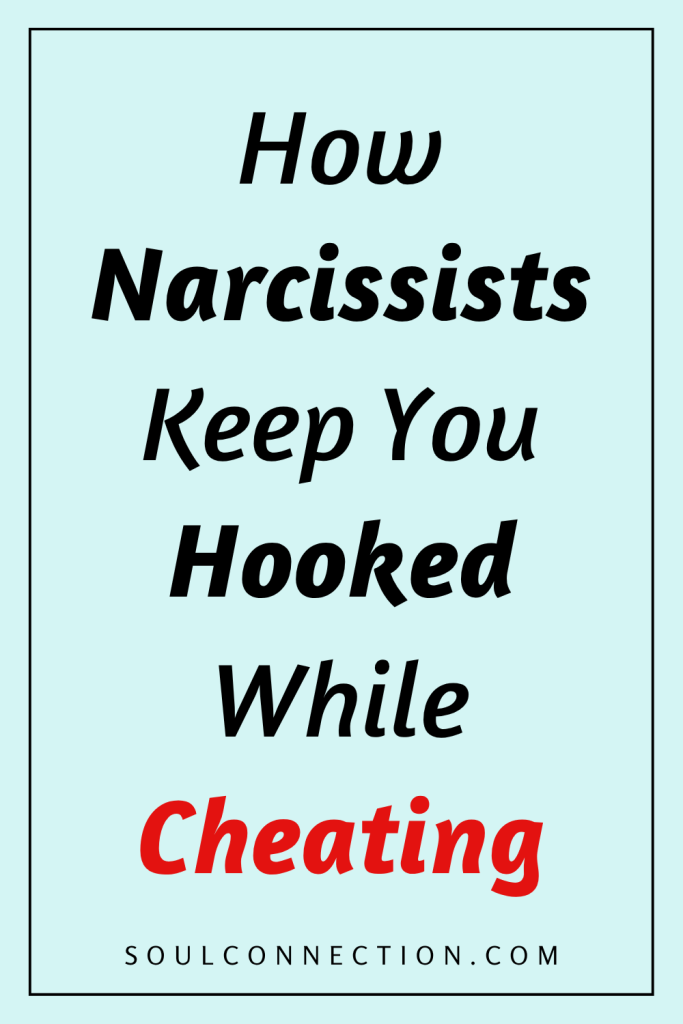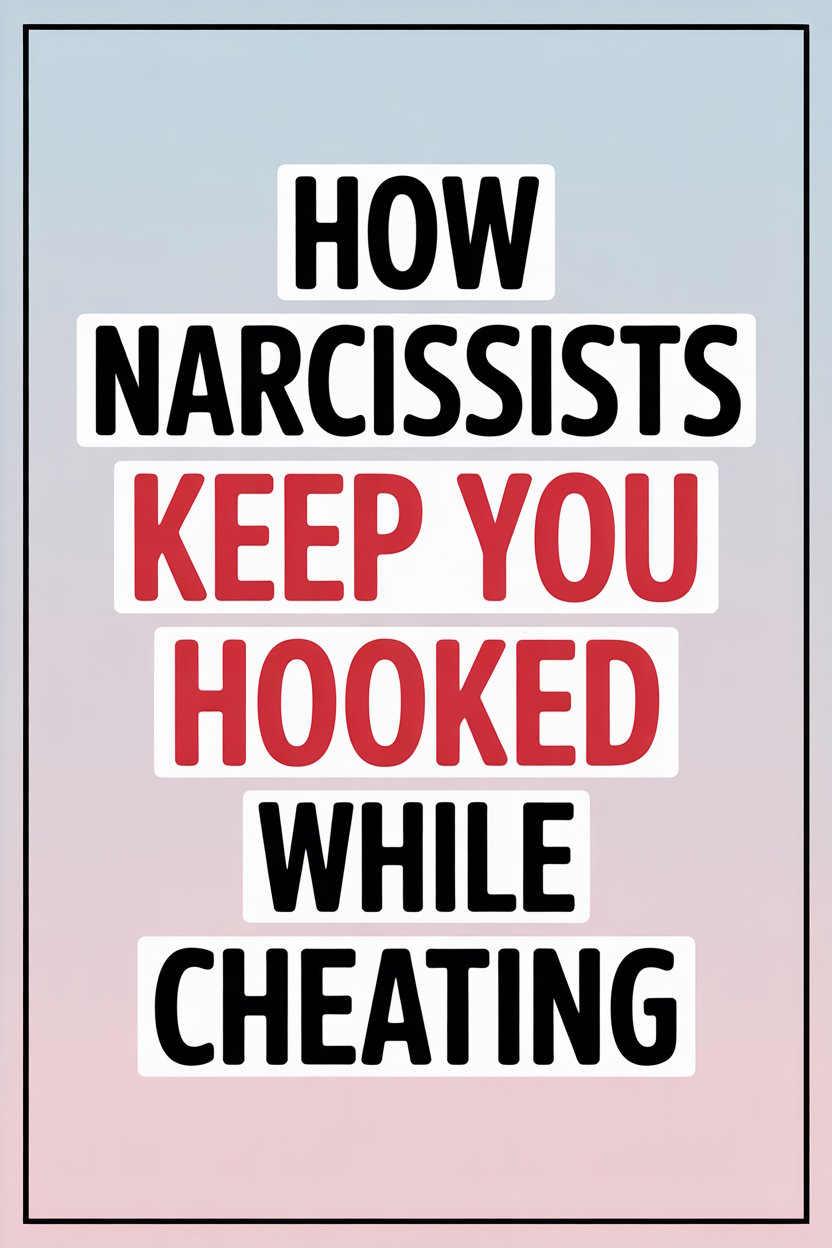Cheating is already a special kind of emotional rollercoaster, but toss a narcissist into the mix and suddenly you’re riding blindfolded, upside down, and possibly without a safety harness.
If you’ve ever wondered why it’s so hard to leave, or why your gut keeps screaming while your brain is somehow still debating, it’s time to unpack the sneaky, greasy tricks narcissists use to keep you glued—even when their “loyalty” could win an Olympic medal for gymnastics.
The Magic of Mirroring
Ever met someone who seems to be your soulmate by the third date? You like dogs—they love dogs. You hate coriander—they claim it’s their sworn enemy.
Only a few weeks in, they already know exactly what to say to make you feel special.
This is mirroring: the narcissist’s opening move. By reflecting your likes, dislikes, and quirks right back at you, they fast-track intimacy. It feels amazing. Validation is intoxicating.
Unfortunately, it’s all about making you emotionally dependent—so you crave their approval and attention more than a double shot of espresso on Monday morning.
When cheating comes into play, the mirroring doesn’t stop. It just changes flavor. If you question their whereabouts, suddenly you’re “the only one who understands them.”
Any guilt you feel for doubting them? They’ll mirror vulnerability right back at you, flipping suspicion into sympathy.
Gaslighting: The Reality Distortion Field
Ever left a conversation with your partner and wondered if you’re secretly losing the plot? Maybe you caught them texting someone at 2 a.m., but somehow, you’re apologizing by the end of it.
Welcome to gaslighting, the narcissist’s weapon of choice.
Catch them flirting? Suddenly, you’re “insecure” or “too sensitive.” Bring up the evidence? You “misinterpreted” it. The more you press, the more they question your sanity: “Are you really going to let your imagination ruin this?”
This constant denial wears you down until you start questioning your own memories. After all, if your partner insists it’s all in your head, that must mean you’re the problem… right?
Spoiler: You’re not.
The Breadcrumb Buffet
Narcissists aren’t about to let you walk out the door—not when you’re serving up an all-you-can-eat buffet of ego boosts. Instead, they toss out breadcrumbs.
Little scraps of affection, promises, or even a decent date night—just enough to keep hope alive.
After a blow-up or suspicious incident, out comes the grand gesture. Maybe flowers, maybe a teary apology, maybe a sudden trip down memory lane about “how good things used to be.”
These crumbs trigger a cycle: confusion, hope, disappointment, repeat.
If you’ve found yourself hanging on for months—or years—because of “how good it was at the start,” you might be living off breadcrumbs.
Triangulation: Stoking the Competition
Love triangles aren’t just for soap operas. Narcissists love to make you feel like you’re in constant competition—even if you’re supposed to be the only one in the race.
Expect sly mentions of “friends” who find them attractive, exes who “still want them,” or those mysterious DMs from people who “just don’t get boundaries.” These stories aren’t casual conversation—they’re designed to spike your anxiety and keep you on your toes.
If you start to pull away, they’ll use another person as proof you’re replaceable. The result? You’re too busy fighting off imaginary competition to notice you’re being played.
Future Faking: Promises, Promises
Ever heard about the dream holiday you’d “someday” take together? Or the ring they almost bought? Or the house you’d move into “once things settle down”?
Future faking is the narcissist’s specialty. Big talk, zero follow-through. These promises are shiny distractions to keep you invested while their attention is elsewhere.
Every time you question their faithfulness, a new grand plan appears. Your mind drifts toward the future (where everything’s Rosy and Monogamous), instead of focusing on the sketchy present.
Victimhood Olympics
When you catch them red-handed, out comes the gold medal performance. Suddenly, they’re the real victim: of a bad childhood, an ex who “damaged them,” or even of your own “unreasonable expectations.”
Your empathy gets flipped like a pancake. Now you’re comforting them, rationalizing their betrayal, feeling guilty for being hurt. If you’re a naturally compassionate person, this is like catnip—your urge to help can override your anger.
The more you play therapist, the longer you hang around. Mission accomplished (for them).
The Silent Treatment and Sudden Affection
Some days, it’s like you’re invisible. Calls go unanswered, texts ignored, you’re left dangling. This isn’t just forgetfulness—it’s a deliberate move to make you desperate for their attention.
Just as you’re about to give up, they reappear with affection, gifts, or the best date night you’ve had in ages. Relief washes over you. Maybe it was just a rough patch?
Nope. Welcome to the push-pull: keeping you emotionally off-balance, so the highs feel higher and the lows keep you chasing.
Smear Campaigns and Isolating You
You’re starting to put the puzzle pieces together, and your partner senses the jig might be up. Suddenly, friends or family report strange comments.
“They said you’ve been really stressed lately.” “They’re worried about your jealousy.”
Narcissists plant these seeds to discredit you before you can expose them. It’s a preemptive strike: if you call them out, you look “crazy” or “vindictive.”
Isolation doesn’t always come with a dramatic showdown. Sometimes it’s subtle—one critical remark about your friend, a guilt trip about your family, until your world shrinks, leaving you ever more dependent on the person betraying you.
The Illusion of Change
Caught them? Tears, apologies, and a sudden interest in therapy. They promise to change, read every relationship book in print, and maybe even drag you to a counseling session or two.
For a hot minute, things seem better. Change is in the air. You want to believe it’s real. But as soon as your guard drops, the old patterns slide back in, slick as a politician’s speech.
Genuine change is slow, consistent, and—frankly—hard work. A narcissist will do just enough to keep you invested, nothing more. If every promise of change evaporates faster than your New Year’s resolutions, trust your gut.
The “Soulmate” Script and Trauma Bonding
At the beginning, it felt like destiny. Like you’d known each other in a past life. That wasn’t just chemistry—it was a carefully scripted performance.
Narcissists lay on the soulmate talk thick, fast, and early. This manufactured intensity makes the inevitable betrayal feel catastrophic. After all, if they’re your soulmate, the problem must be you, right?
This whiplash of high highs and low lows actually creates a trauma bond. Your brain starts chasing the next high, desperate to get back to “how it used to be.”
The result? You stay hooked, even when every rational part of you screams, “Run.”
What Actually Works If You’re Stuck
Recognizing these patterns isn’t about shaming yourself for sticking around. Narcissists are Olympic-level manipulators, and their games are confusing on purpose.
What actually helps? Get outside opinions. Friends, family, or a therapist can spot red flags your heart doesn’t want to see.
Create distance. Emotional and physical. Even a few days away can bring clarity.
Write things down. When the gaslighting gets thick, a journal can help you keep track of facts and feelings.
Don’t wait for them to change. If the patterns keep repeating no matter how many second chances you give, believe what you see.
Compassion is a wonderful thing—but saving yourself is even better.
When It’s Time to Unhook
Let’s be honest: the idea of leaving can feel overwhelming. The hope that things will “go back to the way they were” is powerful stuff.
But real connection isn’t built on manipulation, secrecy, or feeling like you’re always auditioning for someone’s love.
A healthy relationship feels safe, not suspenseful. If you’re reading this and things sound a little too familiar, you’re not alone.
Loads of smart, loving people have been tangled in these webs—and gotten out.
You deserve honesty, loyalty, and respect that doesn’t vanish the moment your back is turned. If that’s not on offer, there’s a whole world out there with your name on it—and not a narcissist in sight.


